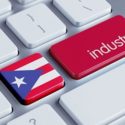Puerto Rico’s Tax Act 60 is a tax incentive program designed to attract businesses to the Island and stimulate economic growth. The act was enacted in 2019 and offers tax benefits to companies that provide export services from Puerto Rico.
The Act offers a range of tax incentives to eligible companies, including
- A flat income tax rate of 4% for eligible export services income
- A 50% tax credit on the purchase of tangible personal property used in export services
- A 75% tax exemption on the property tax on export services property
- A 90% tax exemption on municipal and state taxes on export services property
- A 100% tax exemption on dividends or profit distributions to shareholders or partners
To be eligible for the tax incentives under the Export Services Act, companies must meet certain requirements, including not having been a resident of Puerto Rico for a decade. This means that people who are actually from Puerto Rico are not eligible.
The companies getting these advantages are required to have at least one full time employee living in Puerto Rico, but that could be the owner of the company.
Section 936
From 1976 until 1996, corporations paid almost no taxes for proifts earned in Puerto Rico under the Possessions Tax Credit, part of section 936 of the Internal Revenue Code. Not only did these companies avoid federal taxes, but they often were able to make individual deals with the government of Puerto Rico to avoid local taxes as well. Following modifications in 1996, the tax breaks effectively ended in 2006. Many U.S. companies simply diverted their Puerto Rican earnings to the Cayman Islands or another tax haven. They did this not by moving the factories, but by moving the address.
These corporations weren’t employing lots of people in Puerto Rico to gain these tax-free earnings. A company might have 200 workers in Puerto Rico and 4,500 in Seattle, but claim that most of their earnings were sited in Puerto Rico. The value for Puerto Rico was limited.
More tax incentives?
And yet there are those who say that Puerto Rico needs tax incentives. There are even those who say that statehood would be a bad idea for Puerto Rico’s economy because the Island would lose the power to offer special tax incentives to industry.
Business experts disagree. They suggest that Puerto Rico could draw more industry by focusing on improving infrastructure. Logistics (transportation) issues can be significant in Puerto Rico, and energy costs are very high. Working on these obstacles to industry could pay off in the long run.
Beyond the views of Puerto Rican politicians or mainland business pundits, however, there is some simple data that can easily answer the question of how important tax tricks are for Puerto Rico.
Unemployment is higher in Puerto Rico than on the mainland. Average income is lower in Puerto Rico than on the mainland. Puerto Rico is coping with enormous debts, a shrinking economy, and financial woes beyond what most states have ever seen. If the tax breaks were good for Puerto Rico, things would be different.








One response
[…] Tax tricks haven’t saved Puerto Rico yet, and they probably never will. The solution for Puerto Rico’s woes is simple: statehood. 32 territories have become states and gained prosperity. Puerto Rico can do the same. […]